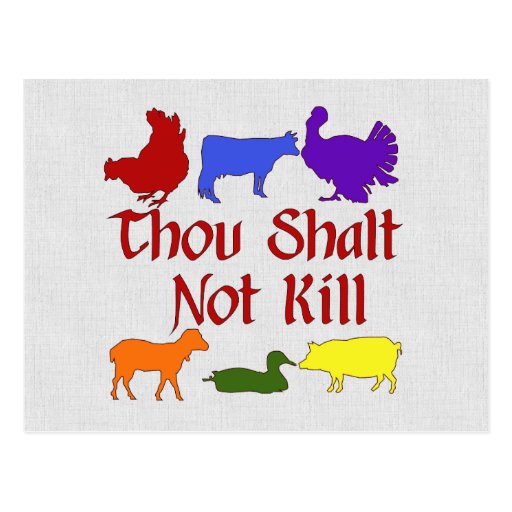What is the number one reason not to eat animals?
According to Genesis 1:29, the food in the Garden of Eden was plant-based. After Adam and Eve were banished from the garden, God supposedly provided them with animal skins, but it's not explicitly stated that the animals were killed for this purpose or any other reason.
In subsequent generations, we learn that Abel's animal sacrifice was preferred over his brother Cain's plant-based offering. Later, after the flood, God made a second covenant with Noah that allowed people to not only sacrifice animals for the forgiveness of sins but also to consume them (Genesis 3).
Pagans questioned eating animals
It's intriguing that one of the significant factors in the arguments against meat consumption was rooted in paganism. In ancient Greece, philosophers engaged in a heated discussion about the ethics of killing animals. Among the various perspectives, the anti-animal stance of the Stoics, who emerged around 300 BC, was the most influential. Their viewpoint was remarkable and, in many ways, compassionate: all rational beings are interconnected and have a responsibility to treat each other justly.
However, ultimately, the ancient Greeks deemed it acceptable to consume animals because they believed that they were inferior beings.
What does veganism say about the reasons for not eating animals?
John: ''When these posts first started appearing on my feed, I considered you unfamiliar with scripture. Over time I have found that not to be so. Instead, you are very well-read and unfortunately have developed your own version of truth that violated the scriptures.The sad part of all of this is that although you reject scripture as written (the words of scripture have meaning), you reject the true meanings of those words and distort them with your own. You are on very dangerous ground and need to repent. You will stand in front of the author of scripture soon and give account for your choices.''
The forced evangelism of the people in 3rd world countries is a practice that was present during the colonial era and even 500 years later the idea that the people ¨Need Jesus¨ or ¨Need baptism¨(since evangelicals(and Mormons) believe they are the only means of salvation) is still present in today's missionary evangelists. It is abusive and again it is not what Jesus taught.
The bottom line is, neo-colonialism and evangelism as practiced violated the great commandments of respecting God and loving your neighbor (or the Golden Rule), as described by Jesus in the New Testament in Matthew 22:35-40, Mark 12:28-34, and in answer to him in Luke 10:27.
*forcing an individual or group of people to believe in something is not loving them, it is a manipulative abuse of them.''
Why is the Golden Rule at the heart of Veganism?
Vegans hold all creatures in high regard and treat them with compassion, kindness, and fairness as per the Golden Rule. They view animals as free beings, not as commodities or slaves to exploit.
The primary principle of veganism dictates that we must not harm animals in any way, as we would not want to be harmed ourselves. This aligns perfectly with the Golden Rule's application.
Vegans strive to live in harmony with nature and maintain an ethical relationship with both human and non-human animals. They acknowledge that the production of animal-based foods and other animal products entails the taking of innocent lives. The brutality and fatalities associated with animal agriculture are in direct violation of the fundamental commandment of all major religions, which instructs us to "love our neighbors."
____________
Comments
Post a Comment